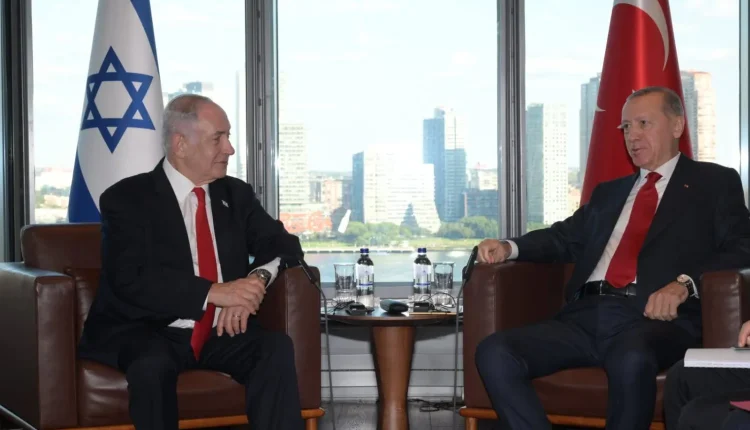Turkish-Israeli cooperation claims signal shift in Syria – Russian analyst
QAMISHLI, Syria (North Press) – Claims of Turkish-Israeli cooperation to divide zones of influence in Syria signal deep strategic shifts in the region, Dmitry Bridzhe, a Russian political analyst, told North Press on Thursday.
He noted that the report points to growing, unspoken understandings between regional powers regarding Syria’s future.
Bridzhe was commenting on a recent report by the Israeli newspaper Yedioth Ahronoth, which revealed behind-the-scenes cooperation between Israel and Turkey to delineate areas of control in Syria until long-term stability is achieved.
“The idea of dividing control—with the United States in the east and Russia along the coast—reflects efforts to impose a balance of power that overlooks Syrian sovereignty,” Bridzhe said. “Instead, it cements the military and geopolitical status quo shaped by years of conflict.”
He added that, from Israel’s perspective, coordination with Turkey stems from growing concerns over Iran’s expanding influence, especially in southern Syria. “It is also a way to preempt potential geopolitical shifts stemming from future settlements between Iran and the U.S. or between Russia and the West.”
From Turkey’s point of view, he explained, the country sees northern Syria as critical to its national security. “Through such understandings, Ankara aims to solidify its military presence and curb Kurdish aspirations,” he said.
Bridzhe also noted that U.S. President Donald Trump has shown interest in mediating between Turkey and Israel. “This was evident in his recent meeting with Benjamin Netanyahu. Trump seems to recognize the need for bold solutions to the region’s long-standing issues.”
However, the Russian analyst warned that the Israeli proposal, if adopted, could carry serious consequences. “It risks institutionalizing Syria’s fragmentation, complicating the reconstruction of a unified state. It undermines the concept of central governance and grants indirect legitimacy to prolonged foreign intervention—potentially perpetuating instability and triggering new cycles of conflict.”

